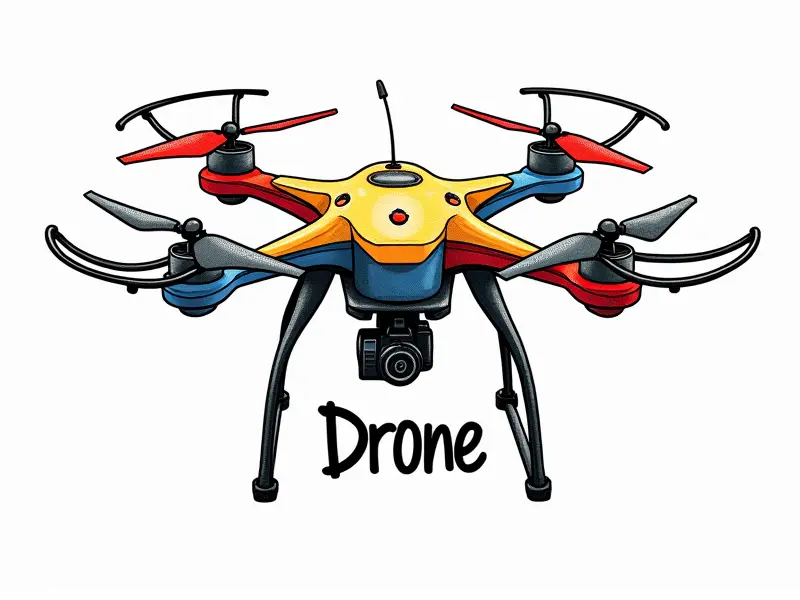Is GPS essential for drones?

Drones have become an integral part of various industries, from photography and videography to agriculture and surveying. One of the most critical components in drone technology is the Global Positioning System (GPS). However, not all drones rely on GPS for navigation and operation. This article delves into whether GPS is essential for drones, exploring scenarios where non-GPS drones can function effectively.
Do You Need GPS for Your Drone?
The necessity of GPS in drone operations depends largely on the intended use case. For commercial applications such as aerial mapping and precision agriculture, GPS is indispensable due to its accuracy and reliability. However, recreational pilots might find that non-GPS drones offer sufficient functionality for basic flight tasks.
Can Drones Function Well Without GPS?
Yes, many drones can operate without GPS by relying on other navigation systems like visual inertial odometry (VIO) or magnetic compasses. These alternatives provide a degree of autonomy that enables drones to maintain stability and perform basic flight maneuvers.
Benefits of Non-GPS Drones Explained
- Cost-Effective: GPS modules can be expensive, making non-GPS drones more affordable for hobbyists and small businesses.
- Privacy Protection: Without GPS data transmission, there is less risk of personal information being compromised.
- Simplified Design: Non-GPS drones have fewer components, leading to a simpler design that may be more durable and easier to maintain.
Advantages of Manual Control Over GPS
Manual control allows pilots to navigate their drones with precision and creativity. This method is particularly beneficial for FPV (First-Person View) racing, where the skill of the pilot plays a crucial role in performance.
GPS-Free Flight: Pros and Cons
Pros
- Increased Autonomy: Drones can operate without relying on external signals, making them more versatile in remote locations or areas with poor GPS coverage.
- Battery Efficiency: Without the need to power a GPS module, drones consume less energy and have longer flight times.
Cons
- Reduced Accuracy: Non-GPS navigation systems may not offer the same level of precision as GPS for positioning and mapping tasks.
- Limited Range: Drones without GPS might struggle to maintain position over long distances or in windy conditions.
The Case Against GPS Drones
While GPS provides numerous benefits, it also introduces challenges such as dependency on satellite signals and increased cost. For certain applications like FPV racing, the need for real-time data from GPS can be a hindrance rather than an advantage.
Is GPS Really Necessary for FPV Racing?
In FPV racing, manual control is often preferred over GPS due to the emphasis on pilot skill and agility. Drones in this context typically rely on visual feedback and rapid response capabilities, making GPS less relevant.
Alternatives to GPS for Drones
- Vision-Based Navigation: Utilizes cameras and image processing algorithms to track the drone's position relative to its environment.
- Magnetic Compasses: Provides directional guidance but lacks altitude and precise location data.
- Lidar Systems: Offers accurate distance measurements for obstacle avoidance and terrain mapping.
Navigating Without Drone GPS
Drones can navigate using a combination of sensors such as accelerometers, gyroscopes, and barometric altimeters to maintain stability and orientation. These systems work in tandem to provide a reliable flight experience even without GPS.
Benefits of GPS-Free Drone Flight
- Enhanced Privacy: No data is transmitted through GPS signals, reducing the risk of unauthorized access to personal information.
- Improved Reliability: Drones can operate in areas with poor satellite coverage or signal interference.
GPS Optional: Drone Flying Tips
If you're considering flying a non-GPS drone, here are some tips to enhance your experience:
- Practice Manual Control: Familiarize yourself with manual flight modes to improve maneuverability and control.
- Use Visual Cues: Rely on visual landmarks for navigation and orientation, especially in GPS-denied environments.
- Enhance Battery Management: Optimize your drone's battery usage by reducing unnecessary features that consume power.
Conclusion
The necessity of GPS in drones is context-dependent. While it offers unparalleled accuracy and reliability for certain applications, non-GPS drones can still provide effective solutions for various use cases. By understanding the benefits and limitations of both approaches, you can make an informed decision based on your specific needs.

